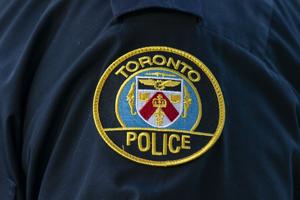Health
Health Officials Issue Alert Over Two New Unapproved Drugs in Ontario

Public health officials in Ontario have issued a province-wide alert following the discovery of two new, unapproved substances in the region’s unregulated drug supply. The alert, released on October 20, 2023, by Public Health Sudbury & Districts, comes after laboratory analyses confirmed the presence of these dangerous drugs identified by Toronto’s Drug Checking Service.
The first substance, known as N-Propionitrile chlorphine or cychlorphine, is an opioid that is as potent as, or even stronger than, fentanyl. The second substance, Deschlorodemethyldiazepam, is classified as a benzodiazepine. Both substances lack approval for any pharmaceutical use, raising significant safety concerns.
Increased Risk of Poisoning
The health unit’s alert highlights that the introduction of these unapproved substances significantly elevates the risk of poisoning for users. It emphasizes that multiple doses of naloxone may be necessary to reverse an opioid overdose, particularly because street drugs can be adulterated or mixed with other potent substances, including fentanyl, carfentanil, or xylazine.
To help mitigate the risk of drug-related poisonings, public health officials have recommended several preventative measures. They advise individuals to carry a naloxone kit, which can be obtained free of charge from various locations including The Point, the Réseau ACCESS Network, and numerous local pharmacies and hospitals. Those seeking naloxone can find nearby distribution points through the Government of Ontario’s opioids webpage.
Key Strategies for Safety
In addition to carrying naloxone, officials recommend avoiding the mixing of different substances, starting with lower doses, and not using drugs in isolation. They suggest having a trusted individual present or utilizing virtual safe consumption services such as the National Overdose Response Service, which can be reached at 1-888-688-6677.
Recognizing and responding to an overdose is crucial. Symptoms of opioid poisoning may include:
– Unresponsive or unconscious state
– Slow or irregular breathing
– Blue or purple lips and nails
In cases of benzodiazepine toxicity, symptoms can last for several hours and may present as:
– Extreme drowsiness
– Confusion
– Slurred speech
If an overdose is suspected, health officials advise calling emergency services immediately and remaining with the affected individual. They also stress the importance of administering naloxone, stating that it poses no harm if opioids are not involved. Multiple doses may be needed, and the individual may not regain consciousness immediately due to sedation effects.
Public health officials are urging community members to share this alert widely to enhance awareness and reduce the chances of drug poisonings across Ontario. The proactive dissemination of this information is seen as critical in addressing the ongoing challenges posed by unregulated drugs in the province.
-

 Politics4 weeks ago
Politics4 weeks agoSecwepemc First Nation Seeks Aboriginal Title Over Kamloops Area
-

 World5 months ago
World5 months agoScientists Unearth Ancient Antarctic Ice to Unlock Climate Secrets
-

 Entertainment5 months ago
Entertainment5 months agoTrump and McCormick to Announce $70 Billion Energy Investments
-

 Science5 months ago
Science5 months agoFour Astronauts Return to Earth After International Space Station Mission
-

 Lifestyle5 months ago
Lifestyle5 months agoTransLink Launches Food Truck Program to Boost Revenue in Vancouver
-

 Technology3 months ago
Technology3 months agoApple Notes Enhances Functionality with Markdown Support in macOS 26
-

 Lifestyle3 months ago
Lifestyle3 months agoManitoba’s Burger Champion Shines Again Amid Dining Innovations
-

 Top Stories2 months ago
Top Stories2 months agoUrgent Update: Fatal Crash on Highway 99 Claims Life of Pitt Meadows Man
-

 Politics4 months ago
Politics4 months agoUkrainian Tennis Star Elina Svitolina Faces Death Threats Online
-

 Sports5 months ago
Sports5 months agoSearch Underway for Missing Hunter Amid Hokkaido Bear Emergency
-

 Politics5 months ago
Politics5 months agoCarney Engages First Nations Leaders at Development Law Summit
-

 Technology5 months ago
Technology5 months agoFrosthaven Launches Early Access on July 31, 2025





















